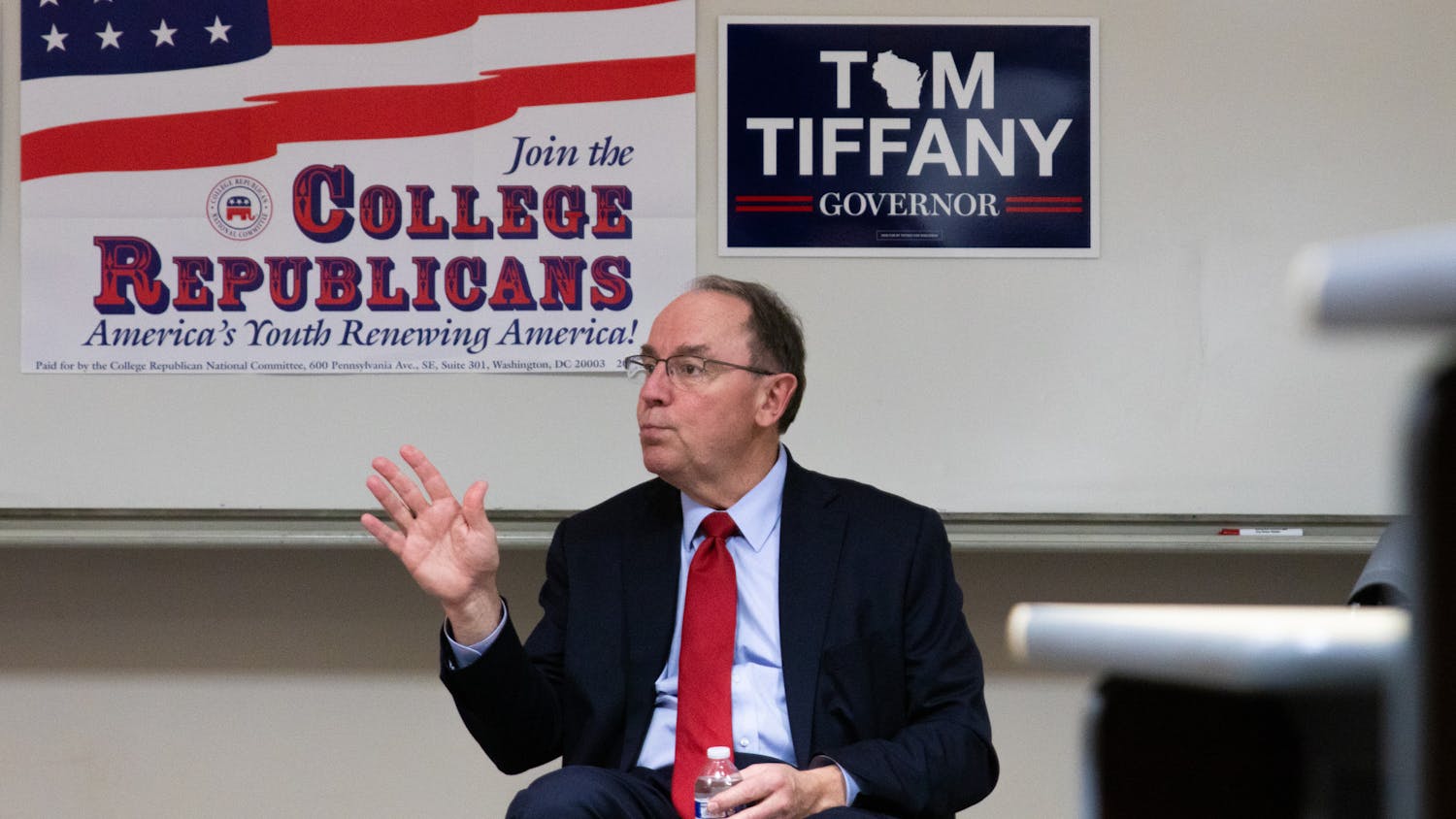Blue-chip high school athletes and collegians with the skills to go pro are often hounded by unscrupulous sports agents offering lavish gifts in exchange for signing a contract that would, according to National Collegiate Athletic Association rules, bar an athlete from competing in college sports, say members of the Wisconsin state Assembly.
In response, a bill before both houses of the Wisconsin legislature would mandate licensing and regulation of all sports agents and allow a student athlete to opt out of a signed contract, thus retaining NCAA eligibility.
According to state Rep. Steve Wieckert, R-Appleton, chief author of AB 403, should the bill pass, a bold-faced provision would head all sports agency contracts informing athletes that in signing the document, they would lose eligibility to compete in college sports.
Many agents neglect to inform athletes of eligibility loss, Wieckert said. Instead, many sports agents lie to players or woo them with cars, money, trips or alcohol in exchange for signing a contract.
By signing a contract an athlete becomes a professional in the eyes of the NCAA and is prohibited from playing college sports, Wieckert said. Should a professional athlete play in a college competition, the NCAA can cut a university's scholarship allotment and make official losses out of any competition in which the athlete participated.
\When you violate the NCAA recruiting rules right now the NCAA can punish the student, it can punish the school, it can punish the whole sports program, but there's no accountability right now for the sports agent, and that's what this bill does,"" Wieckert said, adding the bill has strong bipartisan support.
The bill mandates sports agents register with the Department of Regulation and Licensing and would void any contract between an athlete and an unregistered agent. Additionally, the bill gives student athletes the nonwaivable right to opt out of a contract within 14 days of signing it.
According to Phillip Chavez, a former sports agent and UW-Madison football player who teaches a law school class on sports management, top-notch college athletes are routinely solicited by 75 to 150 sports agents. High school athletes are pursued by fewer agents, but are more susceptible to manipulation because they lack good advice.
Because Wisconsin does not produce many athletes with potential to make it to the pros, the state has few programs warning athletes of eligibility problems, Chavez said. In contrast, big-money university programs repeatedly warn their players on the danger of contact with sports agents.
""Any athlete who comes out saying 'I had no idea I could lose my eligibility if I signed a contract with an agent' is just being ridiculous or possibly the dumbest man in America,"" Chavez said.
UW-Madison Assistant Athletic Director for Communications Steve Malchow said the school's athletes are warned about the dangers of having contact with agents and supported a bill for their regulation.
""I'd say it's positive legislation. Anything that's there to try to clean up that whole business is great,"" Malchow said.





